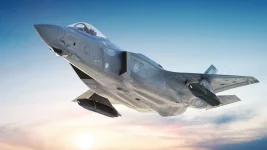- Views: 201
- Replies: 11
Taiwan has officially expressed interest in acquiring India's domestically developed D4 anti-drone system, a move that signals strengthening defence cooperation between the two democracies.
According to sources, the request is driven by the system's demonstrated success and its advanced capabilities in countering aerial threats, which Taipei sees as crucial for bolstering its security against increasing pressure from China.
The D4 system, which stands for Drone Detect, Deter, and Destroy, was engineered by the government's Defence Research and Development Organisation (DRDO) and is produced by public-sector firm Bharat Electronics Limited (BEL) and private company Zen Technologies.
It gained international recognition after proving its effectiveness in recent border engagements with Pakistan, reportedly neutralizing sophisticated drones and loitering munitions.
This battle-tested reputation has made it an attractive option for Taiwan, which faces frequent incursions by Chinese drones near its airbases and in its maritime territory.
A key feature of the D4 system is its layered defence approach, which combines two distinct methods of engagement.
The first, known as a "soft-kill," involves jamming the drone's radio frequency links and spoofing its GPS navigation, effectively disabling it without physical destruction.
The second, a "hard-kill" option, uses a laser-based Directed Energy Weapon (DEW) to physically destroy the target.
An official from the DRDO noted that this dual capability, combined with 360-degree radar coverage, has drawn significant international interest from nations facing similar security challenges.
India's progress in this field extends to more powerful systems, including a 30kW laser DEW developed by DRDO's Centre for High Energy Systems and Sciences (CHESS) in Hyderabad. This advanced weapon can engage and destroy drones from a distance of up to five kilometres and is slated for procurement by the Indian Army.
Reports indicate that Taiwan's interest is not limited to an outright purchase of the D4 system but may also include potential technology transfer or future collaboration on these more powerful laser-based defence systems.
This development comes amid ongoing strategic discussions about India's foreign policy.
For years, defence analysts have pointed out that while China actively supplies military hardware to India's neighbours, including advanced CH-4A drones to Pakistan, New Delhi has remained cautious about direct arms sales to Taiwan due to diplomatic sensitivities.
A defence analyst commented that a reciprocal approach is justified, stating that supplying advanced systems like the D4 to Taiwan could help balance China's regional influence and establish India as a reliable security partner.
The D4 system is already a versatile asset within the Indian military, deployed in both stationary and vehicle-mounted versions by the Army, Navy, and Air Force.
Its success in countering drone swarms—a growing threat in modern conflict—has also led to inquiries from other countries, such as Armenia and Vietnam.
A formal agreement with Taiwan would likely prompt BEL to significantly increase its production capacity to meet both domestic needs and new export demands.
A successful export of the D4 system to Taiwan would be a major achievement for India's 'Make in India' initiative, highlighting the country's growing self-reliance and innovation in the global defence market.
Such a deal would not only mark a significant policy shift but also pave the way for deeper strategic cooperation, potentially reshaping the security dynamics of the Indo-Pacific region.



